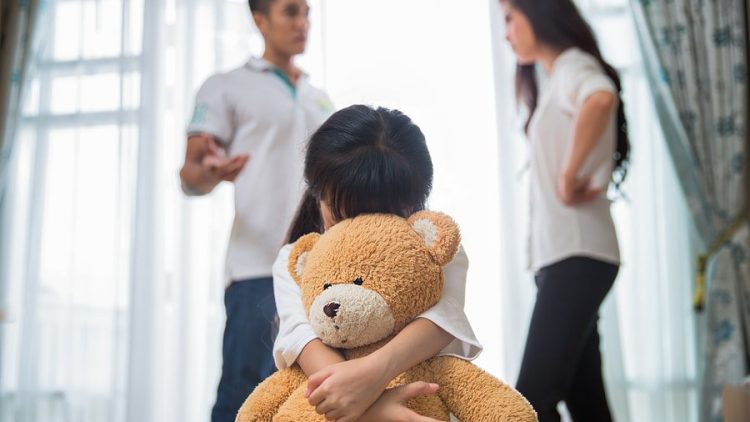Understand What Affects How Your Kids Experience Divorce
Your divorce is hard on you and it’s hard on your kids.
The way they experience the divorce will vary based on many different things.
We’ve broken some of them down to help you better understand the way the changes will affect your kids and how to help them cope.
How many things do the kids lose because of the divorce?
It can be tough to tell how many things a kid may lose as a consequence of the divorce. Maybe it’s the loss of the annual family trip to Disney World, swimming lessons, or spending time with grandparents.
Whatever it is, the more things a kid loses as the consequence of divorce, the harder it can be for them to adjust to their new reality.
It can feel unfair and result in anger; particularly towards whichever parent they see as being responsible for the divorce (this isn’t always the parent that is initiating the divorce).
The best way to manage this is to be mindful of it and do what you can to help the kids understand what is happening. If there’s no discussion around it, the bad feelings are likely to linger.
Dealing with this is one of the key reasons that Ogborne Law teams up with professionals to provide the family with support and guidance around communicating with the kids.
How many things will change after the divorce?
Similar to what they might lose, kids are also sensitive to the things that may change as a result of the divorce.
They might be moving to a new home (or at least staying in one when visiting the other parent), getting a new stepparent, having to attend a new school, or dealing with you having to get a new job.
The more changes, the more stressful the experience. Kids crave safety and security in the world; changes threaten that, especially when it disrupts their family.
It’s not always possible to limit changes but it is possible to help the kids manage the experiences better. Encourage them to share their feelings about the change and whenever possible, involve them in decisions that affect their lives.
It will give them a feeling of some control, which can go a long way to helping them adjust better.
What do they understand?
Your kids will have a lot of questions about the divorce. A lot of them.
Helping kids understand what is going on during the divorce will reduce their overall stress. The more you can make things seem less frightening, the easier it is for them to make the adjustments.
This can be anything from helping them to understand why they may have to talk to a stranger like an attorney or a counselor to talking to them about what the steps are during the divorce process.
And remember that you may need to explain things to them over and over again, in different ways. Be patient with them and be prepared to discuss these things. It’s not easy but it will make things better for them and you in the long run.
How much fighting happens between parents?
Fighting between parents during the course of the divorce can be one of the most stressful things and make it exceptionally hard for children to cope with divorce.
Fighting can be active screaming in front of the children or saying bad things about the other parent in front of the kids.
The truth is that parental fighting is a frightening experience for kids and puts them under a tremendous amount of stress. Kids can show this by thinking they have to fix everything between mom and dad or by thinking that they’re somehow responsible for picking a side in the fight.
No matter how angry or hurt you may feel with your spouse, there’s no excuse for dragging your children into the emotional mess. Control your feelings about your ex and remember these wise words, “If you don’t have anything good to say, don’t say anything at all.”
Not only will you help your children during the divorce, it’ll keep you from saying something you may regret later and irreparably damaging your relationship with your kids.
How do the parents cope with the divorce?
Last but not least, remember that your kids are going to look at you as a model for how to cope with the stresses of divorce.
If you’re handling it well, talking about your feelings, and getting help when you need it, they will learn to handle it well also.
Be deliberate during your divorce process and make sure that you’re focusing as much on your own emotional well being as you are on that of your kids.
There’s a reason that the airlines tell you to put your mask on before helping anyone else – you’re no good to anyone if you haven’t taken care of yourself.
And just like with the divorce, if you aren’t taking care of how you’re coping during divorce, you can’t help your kids.
Give your kids the best chance they have at dealing with the emotional pain of divorce.
Engaging with an attorney to protect your family is never an easy step. Whether you need to protect your family from the unthinkable or restructure your family through collaborative divorce, we’re here to help. When you’re ready to schedule a consultation with Michelle Ogborne, please visit the scheduling page to get started.







